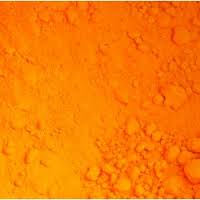| |
Coenzyme Q10 (Ubiquinone)

|
Coenzyme Q10 is a mineral which has a huge role in the production of skin cells.
It can be found in our whole body's tissue structure, but as we grow older its level decreases. That's why it is important to take supplements to complete this deficiency.
Coenzyme Q10 is a crucial component in the cellular energy production cycle. CoQ10 is naturally produced in all cells of the human body, and has been studied extensively for more than 40 years. CoQ10 plays a crucial role in the production of cellular ATP (adenosine triphosphate), which provides energy to all cell functions.
Coenzyme Q10 is an antioxidant that has great importance as a free radical scavenger. CoQ10 protects the stability of the cell membrane, protects DNA from free radical induced oxidative damage, and helps recycle Vitamin E. The human body gradually loses its ability to synthesize CoQ10 as we age. Research indicates that supplementation with CoQ10 may support normal heart function, protect DNA from free radical induced oxidative damage, and maintain healthy energy levels.
Collagen
One part of the skin that free radicals may affect is collagen. Collagen is a protein fiber that makes up much of the connective tissues in your body, including your bones and skin. As free radicals look for another electron to become balanced again, they may steal one from collagen. This causes a break in the structure of the collagen strand. Over time, this can result in the wearing down of collagen, resulting in droopy skin, fine lines and wrinkles.
Elastin
A free radical's search for an electron pair may also disturb the elastin in your skin. Elastin is a protein similar to collagen and gives your skin its ability to stretch and return back to its normal shape and tightness. When a free radical steals one of elastin's electrons, its structure is changed, causing it to break down. The loss of this elastin can contribute to loose skin and wrinkle formation.
Moisture
By preventing free radical damage, coenzyme Q10 can also help keep the skin moist. As free radicals break down the elastin and collagen in the skin, the skin layers become thinner. This allows more moisture to escape the skin. By preventing this breakdown, the skin layers stay thick, keeping the skin cells moist and healthy.
Disclaimer: The information presented
herein is intended for educational purposes only. These statements have not
been evaluated by the FDA and are not intended to diagnose, cure, treat or
prevent disease. Individual results may vary, and before using any supplements,
it is always advisable to consult with your own health care provider.
|
|


















